Gallery Network
Spotlight: For Tattoo Artist and Sculptor Audie Murray, Beading Is an Act of Reclamation
The Metis artist shows with Fazakas Gallery in Vancouver.
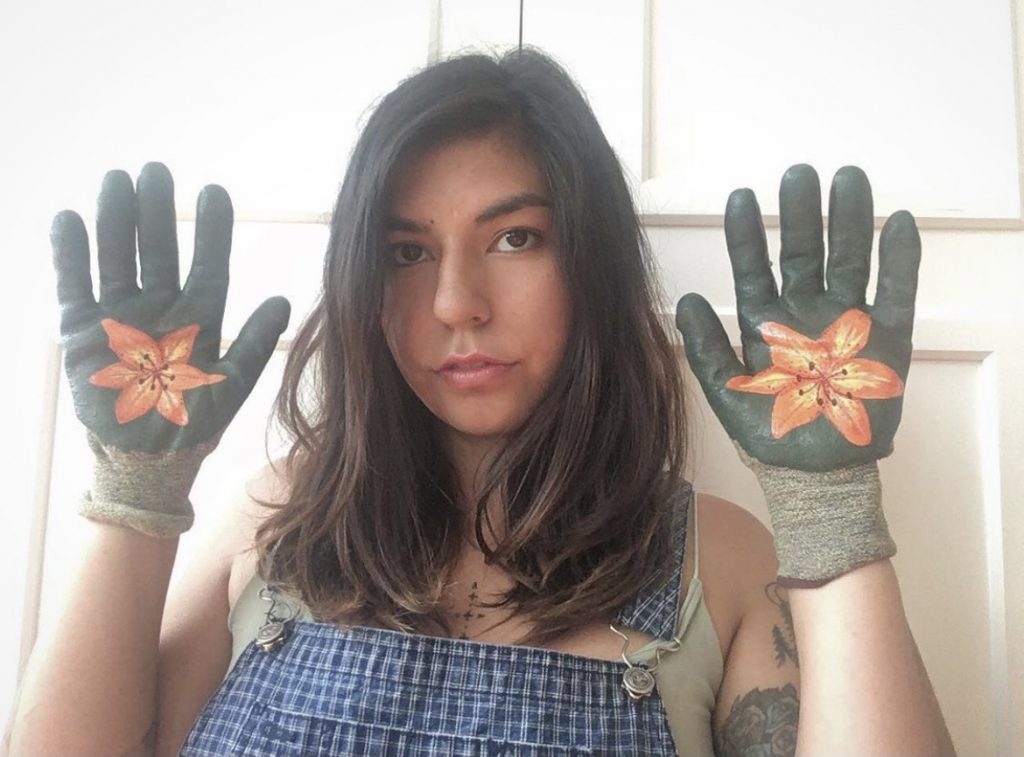
The Metis artist shows with Fazakas Gallery in Vancouver.

Katie White

Every month, hundreds of galleries add newly available works by thousands of artists to the Artnet Gallery Network—and every week, we shine a spotlight on one artist you should know. Check out what we have in store, and inquire for more with one simple click.
About the Artist: Multi-disciplinary artist Audie Murray works across media—beadwork, quillwork, textiles, repurposed objects, and drawing—to create art that seeks to reclaim indigenous bodily autonomy and celebrate the objects of daily life. Murray, who is Michif and was raised in Regina, Saskatchewan, is currently an MFA student at the University of Calgary. She shows with Fazakas Gallery in Vancouver. Murray is also a cultural tattoo practitioner who works in hand poke and skin stitching methods. Murray was mentored by the Earthline Tattoo Collective and views her tattoo practice as an extension of her visual arts practice and her work asserting indigenous bodies.
Why We Like It: Murray’s works weave together indigenous and contemporary cultural practices and explore questions of connectivity and duality. Her works often incorporate objects or garments like gloves, socks, or menstrual care cups, which she translates into objects of reverence through her acts of adornment. There is an intimacy of scale and relationship to her works, which are often relational to the body and seem to offer both practical and metaphorical protection. Many of Murray’s works are in conversation with women artists preceding her, including Hilma af Klint and Eva Hesse, from whom she adopts symbolic language. Like Hesse in particular, Murray simultaneously elevates mundane material while emphasizing its ephemerality.
According to the Artist: “The use of unstable materials and objects in my practice is an act of resistance against capitalistic narratives of permanence, individualism, and ownership while also expressing agency and control over what is accessible to the public within my practice.”
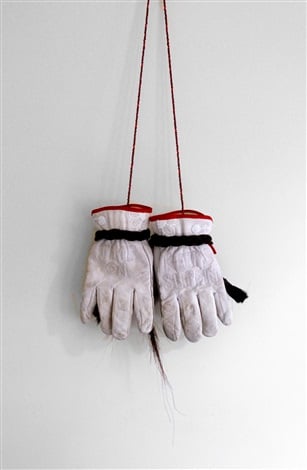
Audie Murray, Time Gloves (2019). Courtesy of Fazakas Gallery.
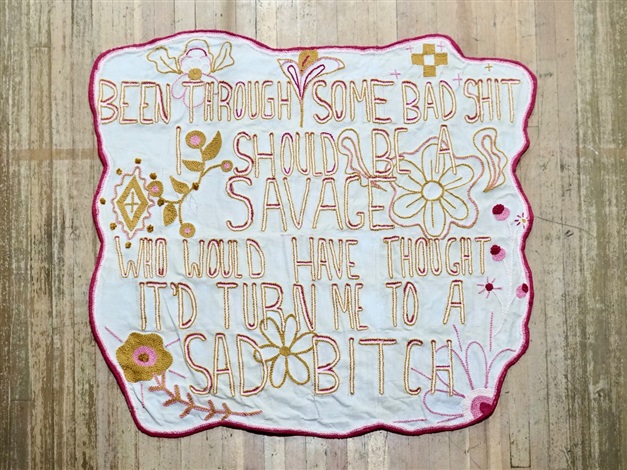
Audie Murray, Savage Sad Bitch Rug (2020). Courtesy of Fazakas Gallery.
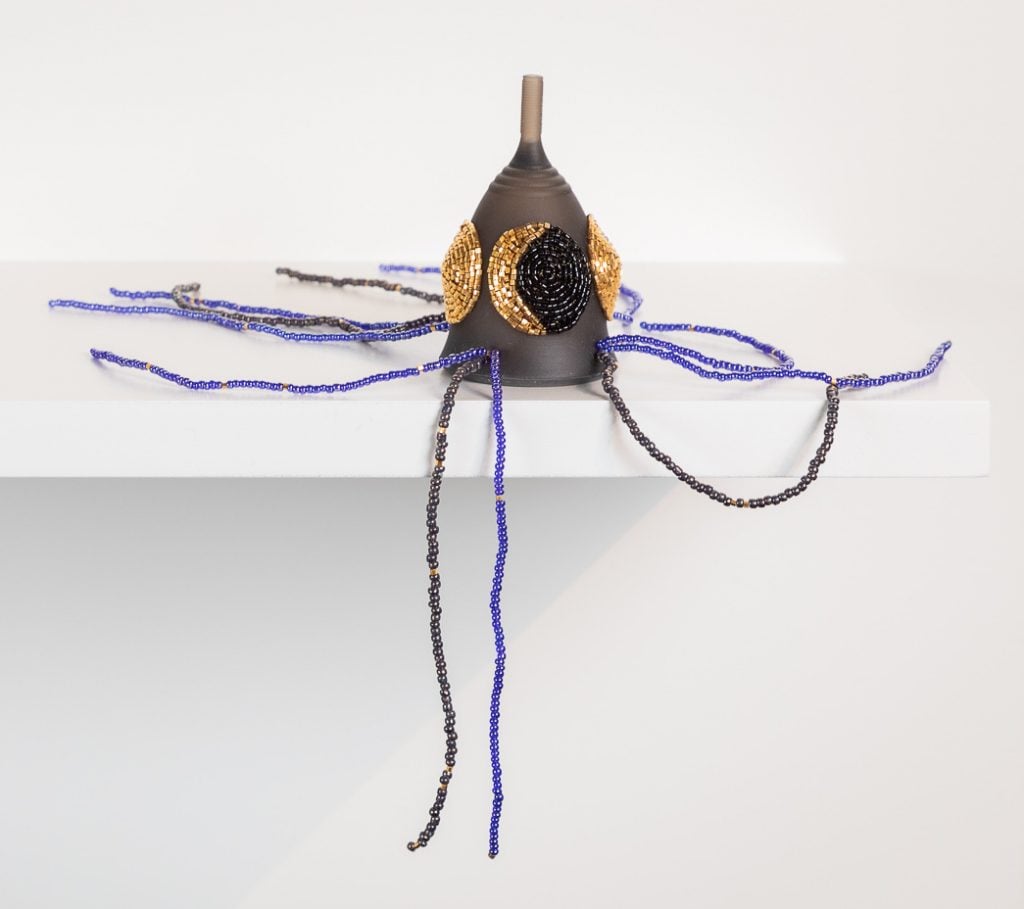
Audie Murray, Moon Cup (2021). Courtesy of Fazakas Gallery.
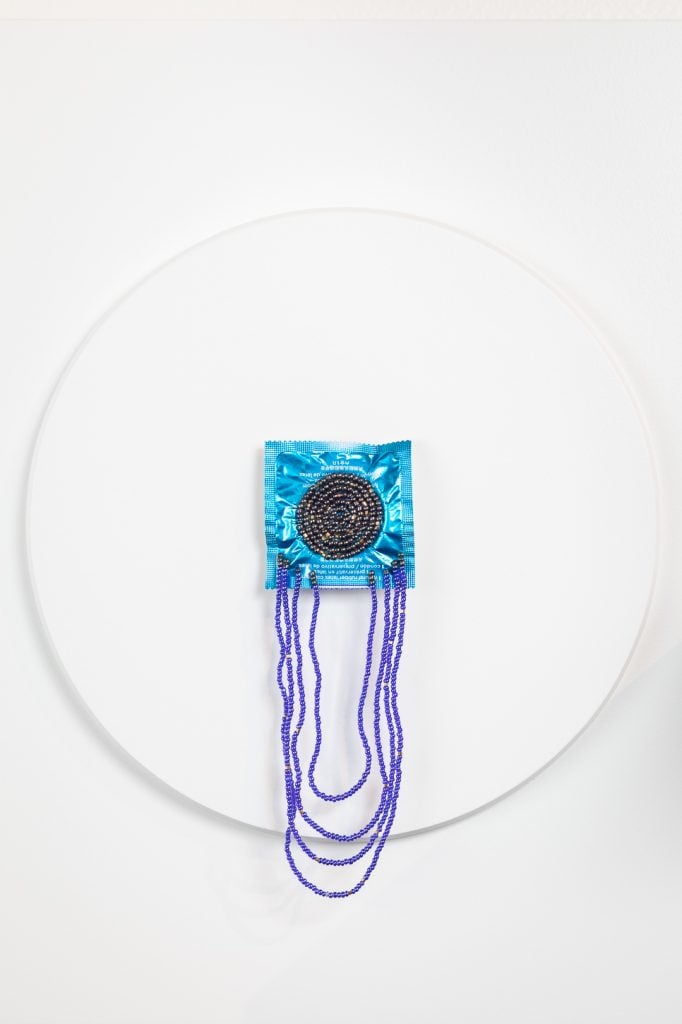
Audie Murray, Protection (2010). Courtesy of Fazakas Gallery.